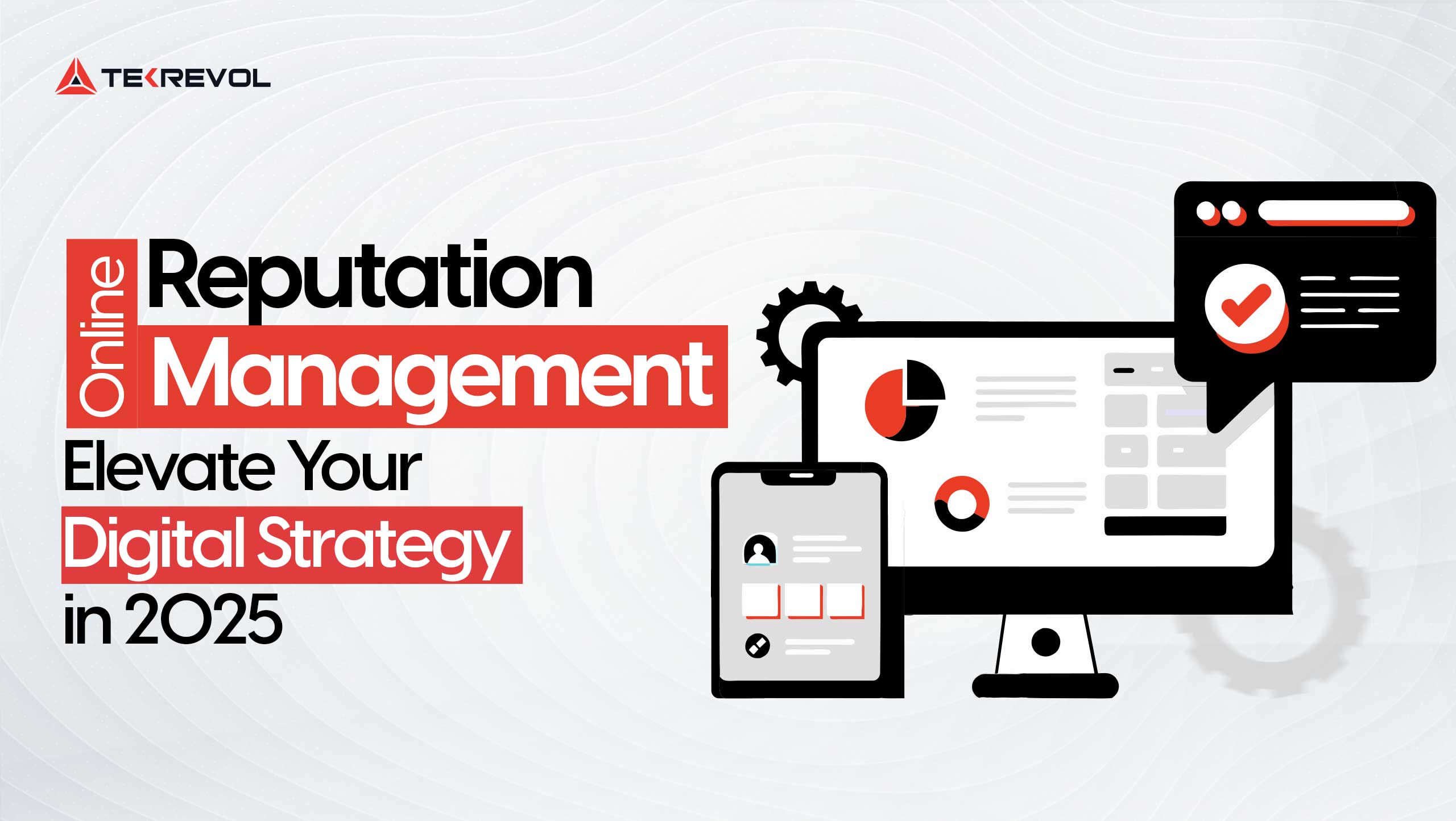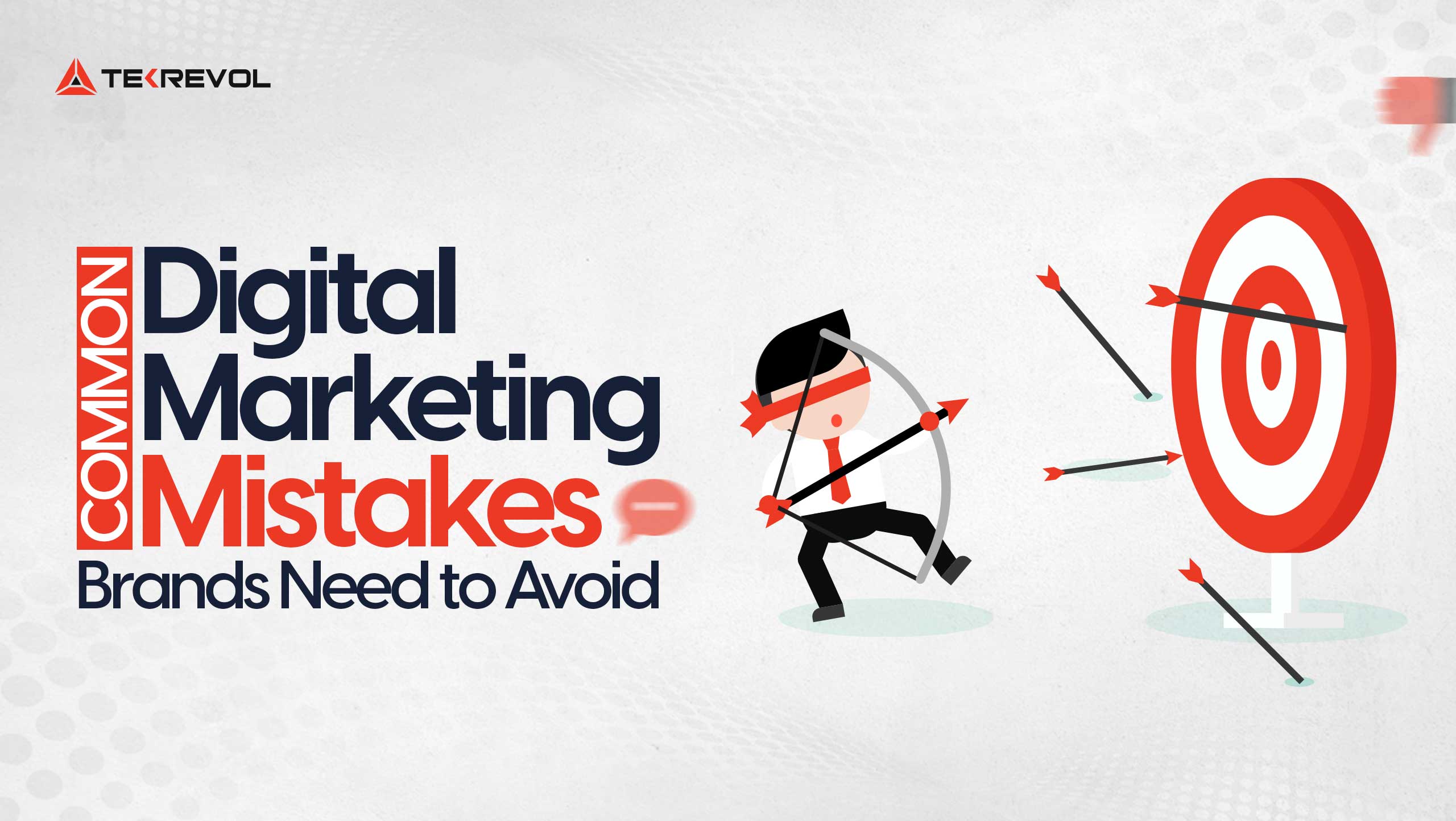Do you think you have got hold of your business? – Well, wait till you get a devastating one-star review staring back at you like an uninvited guest at your celebration. “Terrible service! Wouldn’t recommend even to my worst enemy,” – Ouch!
Reading a review like this can make all your years of hard work just hang by the thread, not only ruining your mood but also putting your brand’s reputation at stake – and this is the last thing you want, right?
Here’s the kicker – About 92% of people today check a brand’s review before making any decision, and this is nearly everyone! Whether your brand is crushing with five-star feedback or you’re trying to build up your reputation from scratch, the right online reputation management strategy can do wonders for you!
With that being said, are you ready to gather quite a fandom of your own? Let’s get you rolling with the best online reputation management hacks and strategies!
Understanding Online Reputation Management In 2025
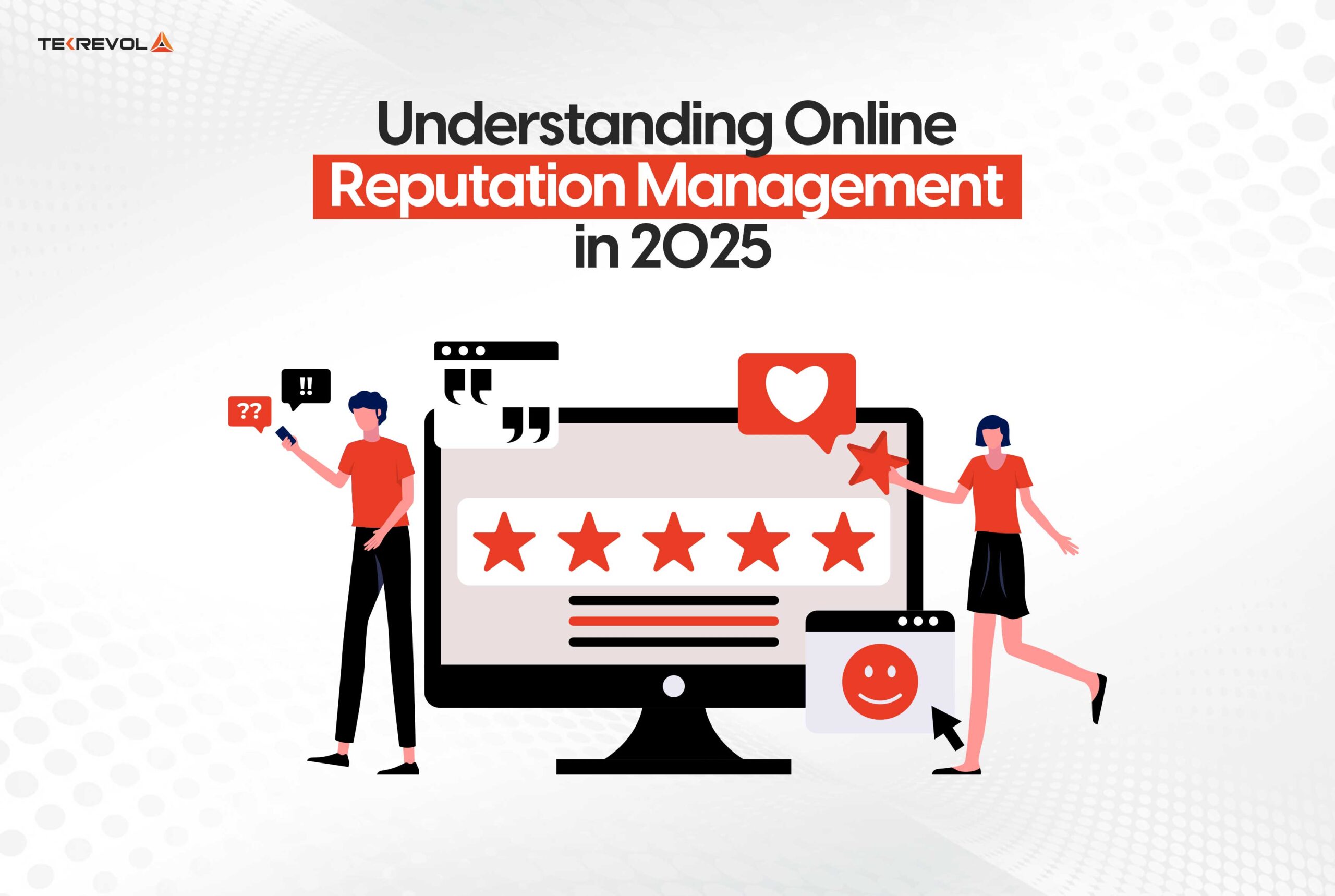
To implement the right online reputation management strategy, you need to have some background knowledge of it. Well, for starters, here you go.
What Is Online Reputation Management (ORM)?
Online Reputation Management (ORM) is the strategic process of observing, influencing, and enhancing a brand’s perception on the Internet.
Since ORM handles everything from customer trust to SEO rankings, it’s a must-have management tool for businesses looking to leave their mark in the industry.
As of 2025, online brand monitoring has become a core practice to influence how audiences engage with a brand in the digital world.
At its core, ORM is about keeping in control the following narratives:
- Promoting positive content about your brand.
- Addressing and eradicating negative feedback online.
- Using reputation management tools to automate and streamline these processes.
Being in an industry where 93% of businesses believe that online reviews influence their buying decisions, ORM has become one of the most important aspects of digital marketing services.
Why Is ORM Critical For Digital Strategy In 2025?
Digital marketing is something that is given more focus in reputation management. Here’s why and how it will become a crucial part of your digital strategy in 2025.
Revenue from Customer Trust
- Harvard Business Review quoted that a business could lose up to 22% of its would-be customers because of negative reviews.
- One negative review can threaten up to 30% of a business’s revenue.
Boosting Credibility through ORM
- Higher and positive feedback and engaging replies increase believability.
- 78% of consumers trust online reviews as much as in-person word-of-mouth.
Link SEO with ORM
- Google prefers companies with good reputations and user-generated content.
- The reviews you receive account for 15% of the ranking factors of local SEO.
- Is your reputation as sharp as your business skills? Or could it use a little polish?
- Let the experts handle the hard work. From social media monitoring to crisis management, we’ve got your back!
Advantages Of An Effective ORM Strategy
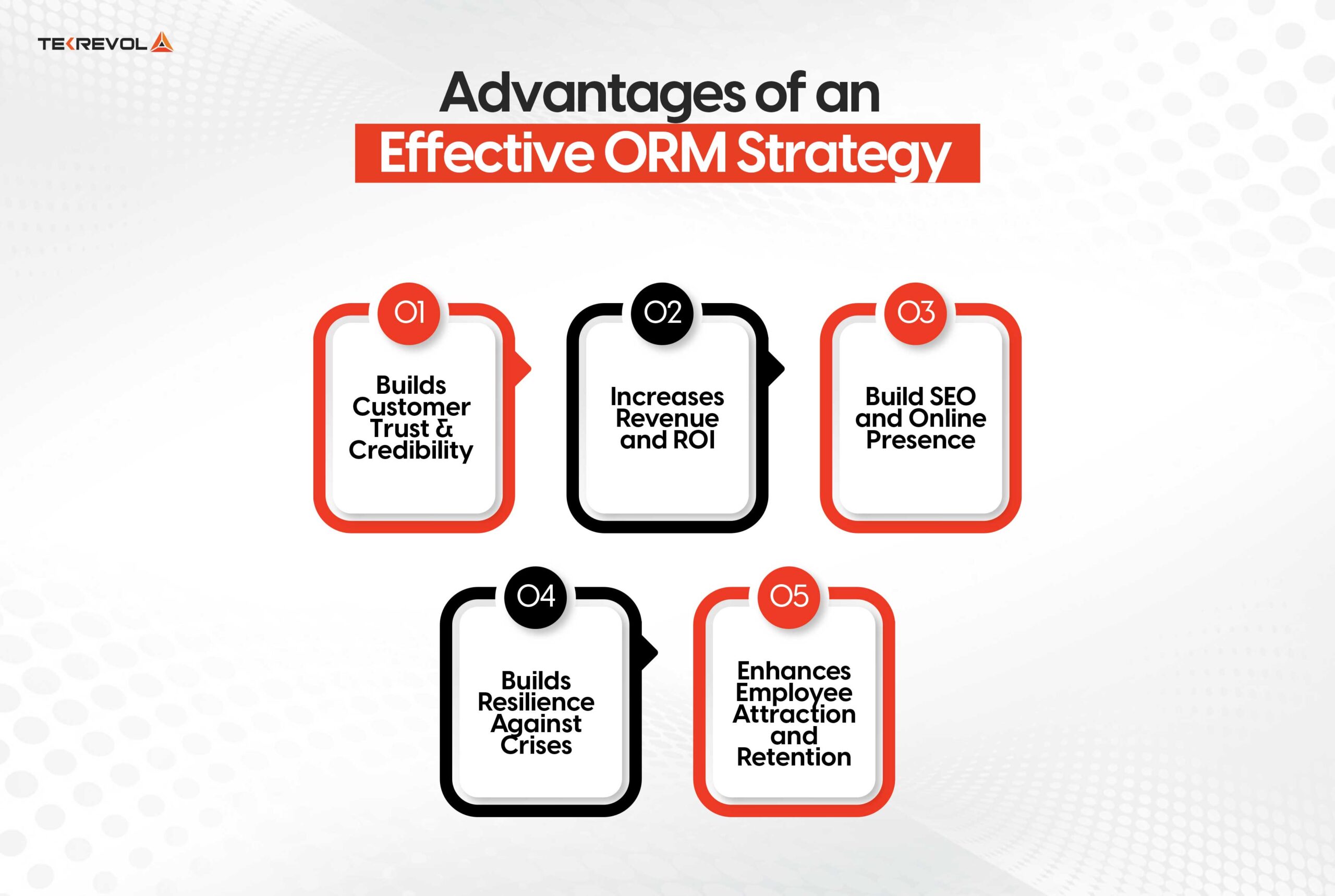
Working in a thriving industry, online reputation management is no longer a luxury—it is a necessity for businesses that want to make a mark.
Here’s why a robust ORM strategy is crucial for your digital strategy 2025.
1. Builds Customer Trust And Credibility
When was the last time you bought something without Googling the reviews first? Never, probably. Trust is the backbone of any successful business, and ORM helps you build that trust by keeping your brand reputation positive online.
- 88% of consumers trust online reviews as much as personal recommendations.
- A business with one bad review loses 22% of its customers. The figure goes to 70% if four negative reviews exist.
By actively managing your negative reviews online, you will be credible and let customers know you actually care about their experiences.
2. Increases Revenue And ROI
Let’s talk about money. Did you know that each additional star on platforms like Yelp can increase revenue by 5-9%? That is the power of positive reviews and customer review management.
A solid ORM strategy has a direct impact on your business. The more positive reviews the customers get about your business, the more they purchase from it.
Direct impacts:
- Increased Conversion Rate: Customers tend to favor those businesses with glowing reviews.
- Lower Advertising Costs: Companies with high reputations don’t rely much on ads and thus maximize the cost on return.
- Repeat Customers: People will come back to a brand they trust, especially one that has a good reputation
3. Build SEO And Online Presence
There’s no doubt that ORM and SEO go hand in hand. Businesses that are well-reputed rank more on search engines, hence making it much easier for you to be discovered – and what exactly drives this ranking? It’s none other than your positive ratings and content.
- 15% of Google local pack reviews rely on quality and quantity of content.
- Optimizing businesses that show a consistent stream of reviews drives the search results ranking – having a positive impact on your online presence.
4. Builds Resilience Against Crises
No business is immune to a PR hiccup. It could be a bad review or a social media storm, but with an effective ORM strategy, you can address any issue with ease.
Key Steps:
- Real-Time Online Brand Monitoring: Use reputation management tools like Brand24 or Mention to detect and resolve issues at an early stage.
- Proactive Crisis Communication: Tackle problems transparently and provide solutions as soon as possible.
5. Enhances Employee Attraction And Retention
Your online brand reputation not only affects your customers but also your ability to attract top talent.
- 86% of job seekers avoid working with companies that have a poor reputation.
- A strong reputation helps increase the chances of retaining your staff, thus promoting a happy workplace culture.
Key Challenges In ORM Today
The world of online reputation management is filled with challenges as brands strive to protect and enhance their digital presence.
Consumers rely heavily on seeking information online, and even the smallest misguided action can have devastating consequences for businesses.
As we approach digital strategy 2025, let’s break down the critical challenges businesses face in ORM today.
1. The Expanding Power Of Bad Reviews
Negative reviews can snowball quickly, which can ultimately damage the reputation of a brand.
According to research, 94% of customers reported that a bad review from one bad experience makes them avoid a particular business. In comparison, 53 percent of those surveyed expect companies to answer a negative review within one week.
How Can Businesses Respond?
- Make use of reputation management software such as ReviewTrackers to watch and then answer reviews.
- Develop an online negative feedback management protocol that transforms detractors into advocates.
2. The Risk Of Social Media Reputation Mismanagement
Social media is both a blessing and a curse for companies. While it is a wonderful channel for connecting with customers, it also broadcasts the worst criticisms. 47% of consumers expect brands to respond to social media complaints within 24 hours.
Solution for Social Media ORM:
- Use an online brand monitoring tool to monitor every comment and review people leave on your brand.
- Use an Online reputation management system to respond to user queries quickly and authentically, thereby establishing trust and credibility.
3. Outdated Or Incorrect Online Information
Even the slight amount of misinformation present on the web is more than enough to bring the brand to the ground, not to mention when outdated articles or false claims appear highest for consumers in search results.
How to cope with misinformation?
- Create content that is fresh and optimized toward best practices in digital strategy or ORM.
- Let your online reputation management manage your online presence through SEO-centri copy work – so no one can make false claims against your brands!
Building A Modern ORM Strategy
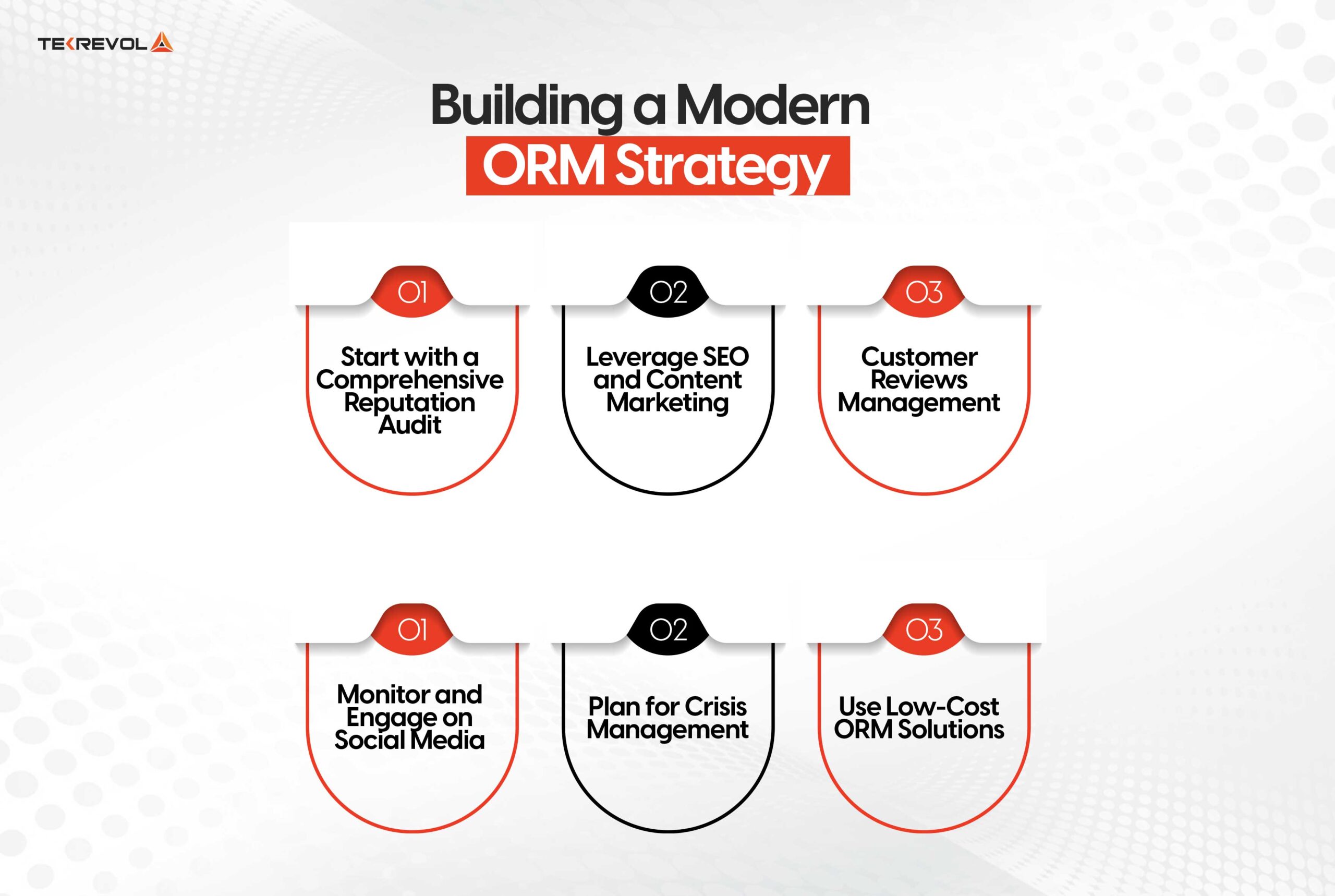
Making it to this end of the article, now you must know that a modern online reputation management (ORM) strategy is essential for businesses to stay competitive. This includes adopting a proactive approach, leveraging the right tools, and aligning your ORM tactics with your broader digital strategy for 2025.
Well, how to build a modern ORM Strategy? Let’s make one with some easy steps below!
Step 1 – Start with a Comprehensive Reputation Audit
Did you know that 82% of customers read online reviews for local businesses, and most trust reviews as much as personal recommendations?
Therefore, a reputation audit is required to determine your current standing before building a good online reputation. It can help identify your strengths, weaknesses, and opportunities to enhance your brand reputation online.
Key Actions:
- Utilize online brand monitoring tools such as Mention or Brand24 to know what people are saying about your business.
- Carry out a sentiment analysis to know how public perception is.
- Analyse reviews on Google, Yelp, and Trustpilot to find out recurring trends of feedback.
Step 2 – Leverage SEO and Content Marketing
Online reputation management SEO requires visibility in search engines. Google’s algorithm gives preference to companies with good reputations.
15% of local SEO ranking factors rely upon the quality and quantity of online reviews. You want people Googling your brand to see positive, authoritative content, right? Let’s do it then.
Best Practices for ORM SEO:
- Optimize your website and blogs with keywords that represent what your brand is about.
- Publish fresh, engaging content, such as customer success stories and expert insights.
- Use video testimonials or case studies to establish credibility.
Step 3 – Customer Reviews Management
Customer reviews are gold for reputation management in businesses. Interacting with reviews-both positive and negative-is an indication of transparency and care.
Action Plan:
- Motivate satisfied customers to leave reviews by offering discounts or loyalty points.
- Respond to reviews in a timely manner. Thank positive reviewers and professionally respond to concerns.
- Do not delete negative reviews. Instead, resolve issues publicly for credibility.
Step 4 – Monitor and Engage on Social Media
Social media is where conversations about your brand happen. Managing your social media reputation is more than posting regularly – it’s about creating real connections.
Social Media ORM Tips:
- Use tools like Sprout Social or Hootsuite to monitor mentions and hashtags in real time.
- Respond to customers’ queries or complaints within 24 hours. It’s believed that 47% of consumers want a rapid response to social media complaints.
- Publish user-generated content and success stories from the customers for more engagement.
Step 5 – Plan for Crisis Management
Well, no company is exempt from the crisis. Being well-prepared may save one’s trust or create loyalty.
Important Components of Crisis Management
- Designate the responsibilities and role for tackling adverse publicity.
- Be as transparent as possible during a crisis, clearly outlining measures that will be taken to fix the problems.
- Run a post-crisis analysis and improve any default that you come across.
Step 6 – Use Low-Cost ORM Solutions
You do not have to spend a fortune to set up a robust ORM solution. Most low-cost reputation management companies offer premium services to small-scale businesses and enterprises.
Look for a business reputation management plan that offers review monitoring, social media engagement, and search engine optimization – basically comes with everything that makes your business a brand!
- Ready to turn your reputation into a revenue-driving machine?
- Let’s make your brand the one everyone trusts and talks about. With the right tools, it’s easier than you think.
How Tekrevol Can Help You With Online Reputation Management?
If you want to learn cricket, you’ll obviously prefer learning from a coach, right? Well, when it comes to Online reputation management, Tekrevol is the coach you need!
Tekrevol specializes in providing customized online reputation management solutions that fully address all unique business objectives. From online brand monitoring to managing customer reviews, Tekrevol offers a customizable set of services that improve online presence and enhance brand reputation online.
Whether you’re looking for affordable reputation management services or expert guidance on managing your online reputation in 2025– the experts at Tekrevol have got you covered.
Ready to maximize ROI? Let’s make it happen with Tekrevol’s digital marketing services, especially focused on ORM!

 872 Views
872 Views December 16, 2024
December 16, 2024